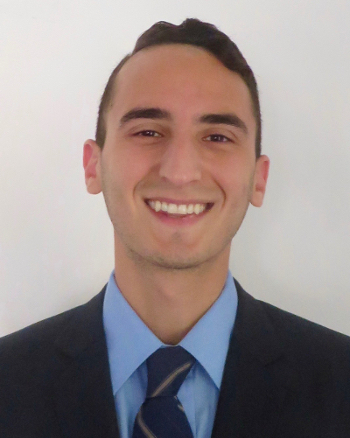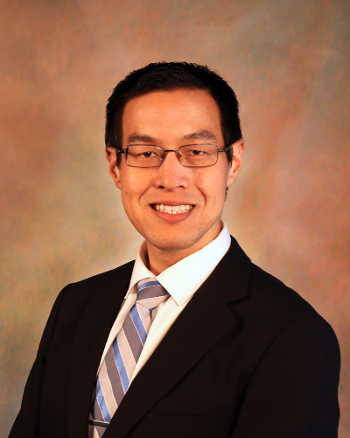
When he came to WMed in 2016, Dan Ferman was ready for what he knew would come in his first two years of medical school and the rigors of learning the intricacies of the science behind medicine.
But he says he also knew, at that time, that in addition to his education, he wanted to find his place as a future physician and not lose sight of the important work he could do through policy, advocacy and community service.
“For me, it was really the bigger picture of why I was here,” said Ferman, a third-year student at WMed. “I didn’t want to go through medical school without having those opportunities to affect change now before we’re actually doctors and taking care of people. I wanted to be a part of that and it gave a direction to all of the studying I was doing at the time.”
Ferman said that vision he had has come to life through his work – and leadership – with the American Medical Association Medical Student Section. He has been involved with the AMA-MSS since shortly after starting medical school and this summer he was appointed chair of the AMA-MSS Committee on Global and Public Health.
In the role, Ferman leads – and works closely with – 14 committee members to educate medical students and the public on issues pertaining to global health while advocating for policies aimed at bettering the greater public health.
In addition to Ferman, David Lee, a fourth-year student at WMed, has gained valuable experience through his work with the AMA-MSS. Just this summer, Lee finished a one-year stint as co-chair of the AMA-MSS Community Service Committee and, more recently, was named secretary of the AMA Foundation Student Ambassador Executive Board.
Lee said his experience with the AMA-MSS has been beneficial because it has opened his eyes to the many ways he can “effect change for my patients and community members in ways that I could not in a clinical setting.”
“From a policy and advocacy standpoint, one vote can cause sweeping change and you can do that much more good for something that you care about,” Lee said.

During his time as co-chair of the AMA-MSS Community Service Committee, Lee was intimately involved in organizing an opioid-themed health fair for medical providers and community members at the AMA Interim Meeting in Honolulu, Hawaii. Then, at the AMA Annual Meeting in Chicago, Lee helped lead a national service project that involved the creation of a 90-minute podcast filled with information about the opioid epidemic along with stories from medical students and community leaders.
Lee said his work with the AMA-MSS chapter at WMed, as well as the national arm of the AMA-MSS, has enriched his experience as a medical student and future physician. Specifically, he said his attendance at the AMA interim and annual meetings have been enlightening for him.
“You get so many different perspectives in a short period of time that one single medical education institution cannot provide,” Lee said. “I think the range of experiences and the amount of energy brought into those encounters you will have with other students and members awakens a drive and a passion.”
Ferman said his work with the AMA-MSS, as well as the Michigan State Medical Society (MSMS) has led to him connecting with other extremely passionate and driven medical students from across the country.
“It has been one of the most rewarding experiences throughout medical school and it’s something that I’ll be involved in for many, many years to come,” Ferman said. “It has given me a better understanding of the scope of medicine and the importance of physicians having an understanding of the intimate connection between public health and medicine.”
Ferman’s current role with the AMA-MSS is a one-year appointment that will end in July. Over the next few months, he said he and members of the Committee on Global and Public Health will be working to develop a partnership with the American Association of Public Health Physicians (AAPHP) to change medical school curricula to incorporate more public health concepts that are necessary to practice as a physician in the U.S.
Meanwhile, Lee said through his work with the AMA Foundation, he is trying to increase medical students’ knowledge and involvement with the foundation and to convey their stories and inspirations to the greater AMA body, while also making students aware of the resources available to them through the foundation, including scholarships, grant money, and leadership development.
